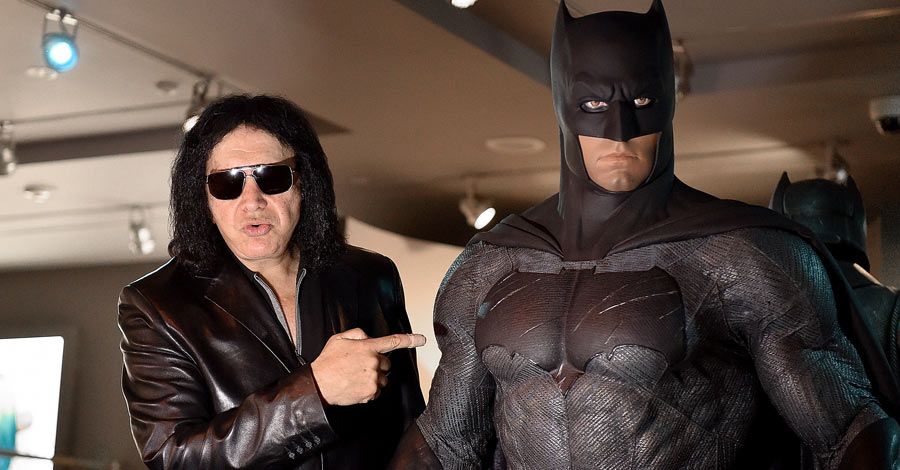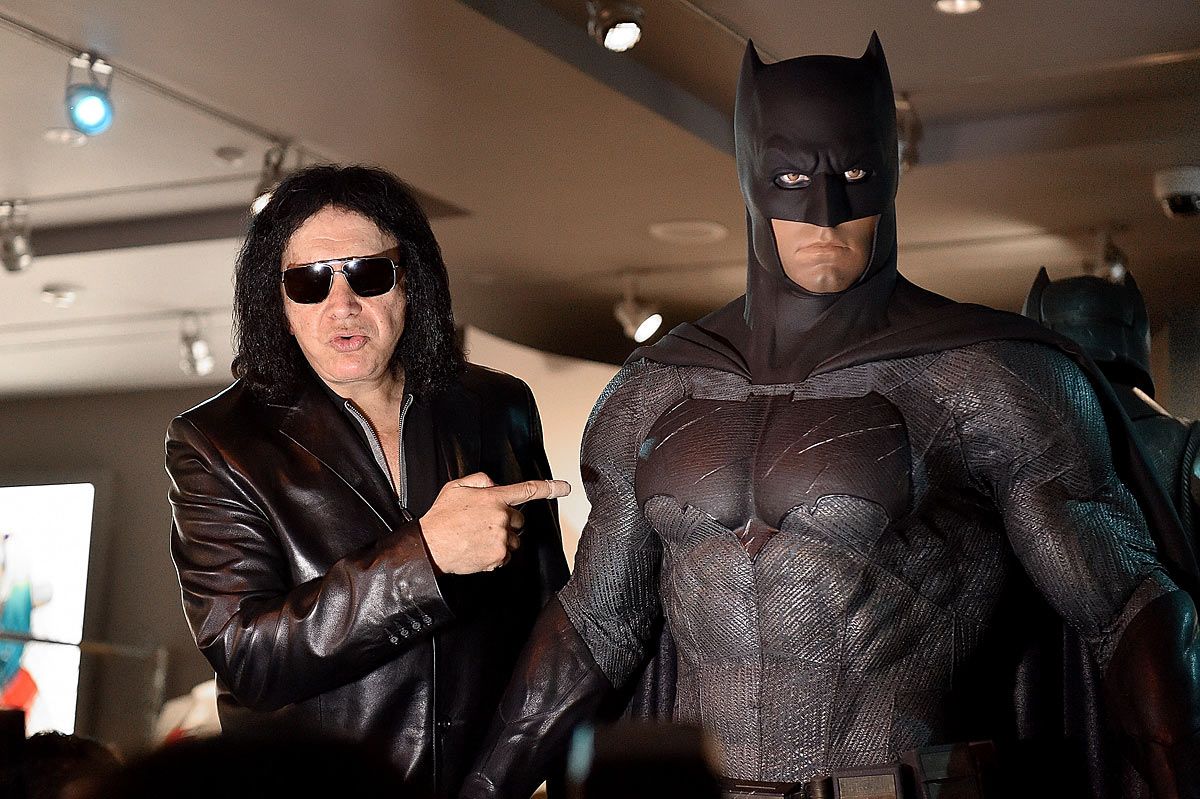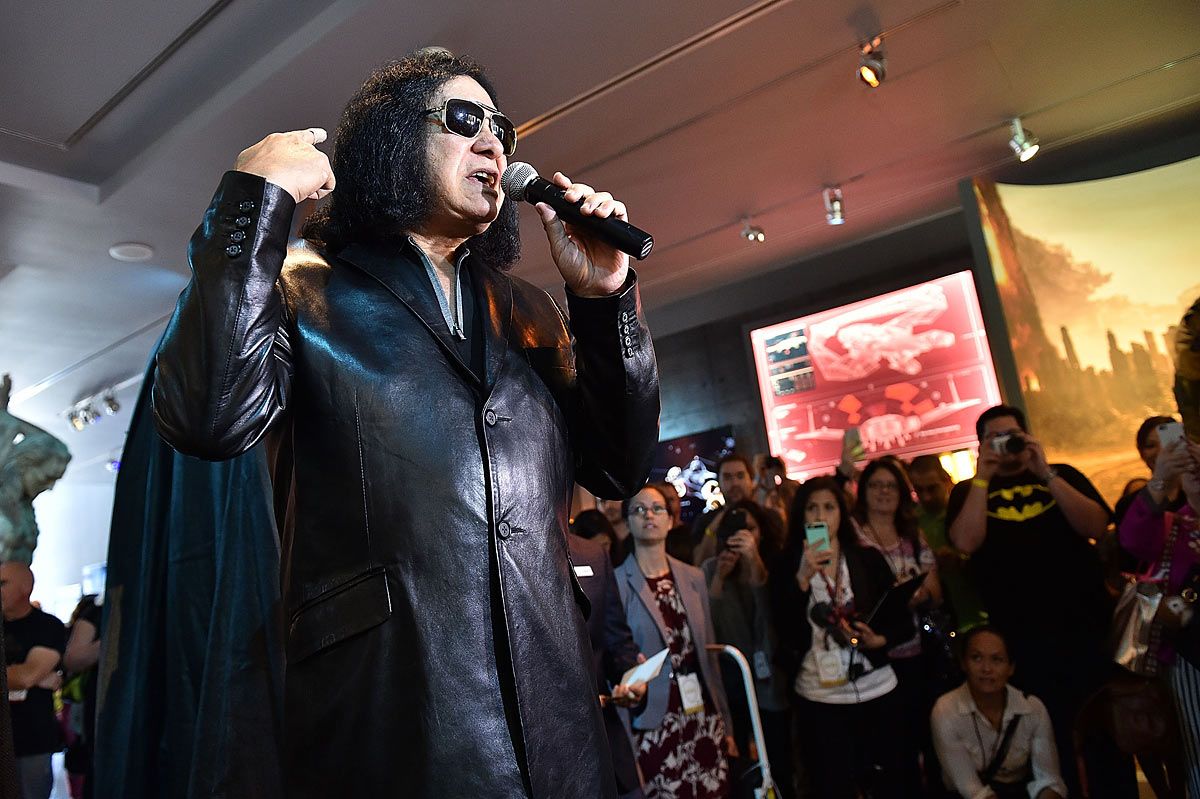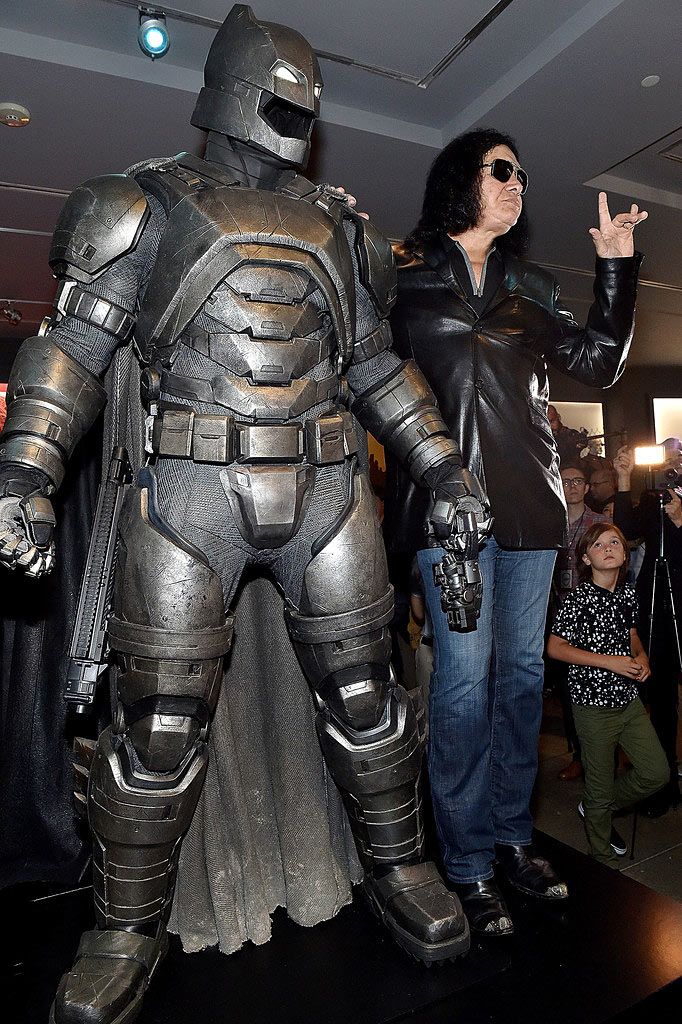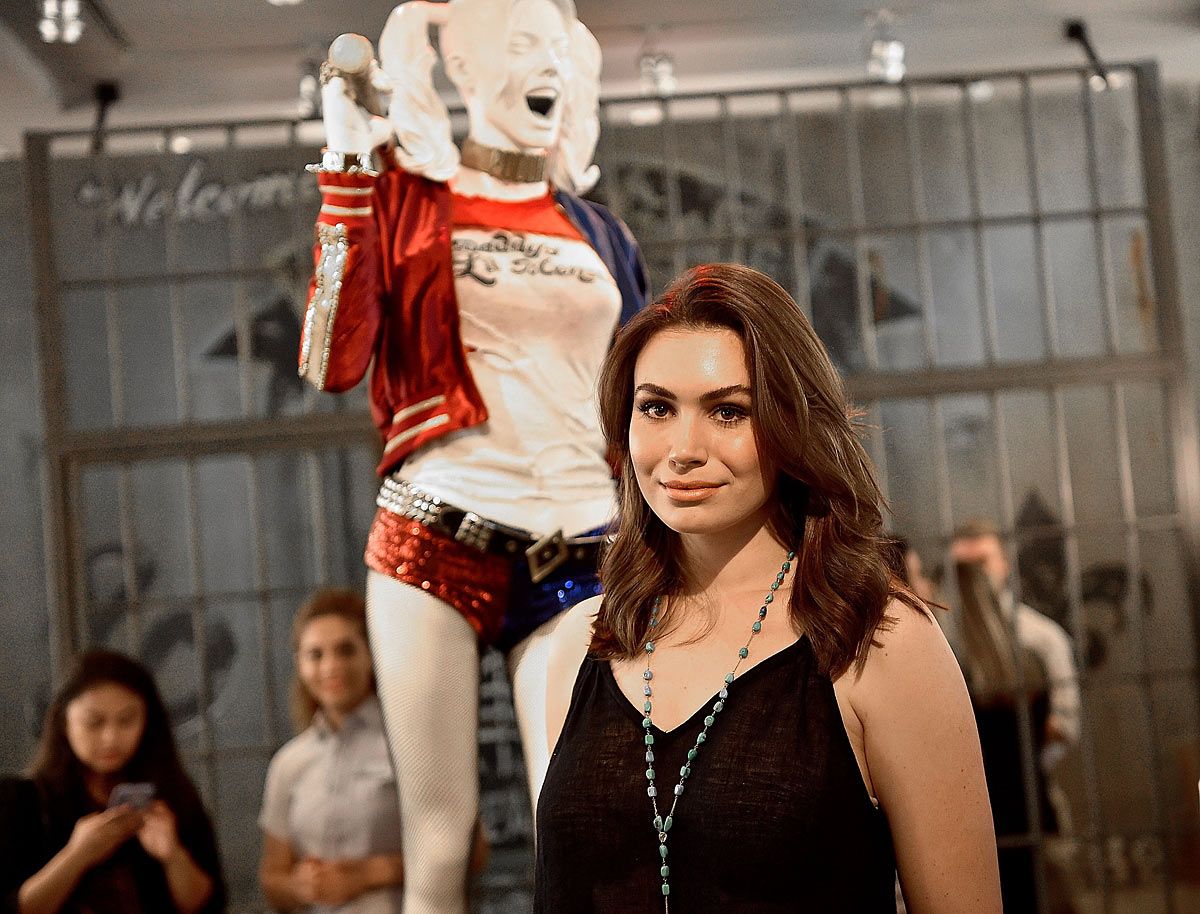For more than 40 years, rock star Gene Simmons has occupied a particularly cool cachet in popular culture as one of the founding members -- and the fire-breathing Demon -- of the legendary rock band KISS. But before the hit songs, the makeup, the merchandise and the groupies, Simmons was a comic book aficionado in the early days when it was a cultish pursuit -- for both fun and profit.
Simmons made an appearance at the press preview for the Warner Bros. Studio Tour Hollywood's new display, "DC Universe: The Exhibit," on the studio's lot in Burbank, CA and he and his daughter Sophie checked out the expansive collection of authentic props and costumes from the current crop of films derived from DC Comics properties.
RELATED: Warner Bros. Studio Tour Hollywood's New DC Universe Exhibit Offers "Suicide Squad" Sneak Peek
And as the rock icon -- who even found inspiration for his famed onstage look from Jack Kirby's design for Black Bolt -- took in the many artifacts on display from "Batman v Superman" and "Suicide Squad," he shared his perspective on a lifetime of comic book fandom with CBR News.
On the enduring, renewable appeal of the superhero:
Gene Simmons: Clearly everybody wants to be a superhero, but people don't really understand the Greek mythological nature, the depth that superheroes conceptually are. Even though they're fictional and sci-fi and all that stuff, there's a great humanism that runs rampant throughout it.
If you take a look at a character like Superman, he's some kid that was from another planet. Krypton blew up and he came to Earth and became invulnerable and bullets couldn't hurt him and square-jawed, grew big muscles, and all the chicks love him and he kind of has a thing for Lois Lane. But when you think about it, he's always going to be alone. He's just a little lost kid inside.
And Batman, likewise: he's a big, strong guy and all that kind of stuff, but his mom and dad were killed by bad guys. He's always going to have a connection to that little boy who saw his parents killed right in front of his eyes.
So even though they're superheroes, if you look at the competition with Marvel and all of that, everybody's got their Achilles heel. In a lot of ways, that really connects with all of us because we all dress nice, we've got a nice haircut and all that kind of stuff, but inside of us, there's that secret, your Achilles heel that we all have to carry on our backs. I used to teach sixth grade, could you tell? It's Shakespearean in a lot of ways.
On the early gems of his own comic book collection:
I used to have a comic book business when I was trying to work my way through college. I used to have these flyers: a dollar a pound paid for your comic books. And all these moms and dads as kids moved out, who now became grown up and married, the attic was full of comic books and they've always wanted to get rid of them. So I'd come in and buy, I don't know, 20, 30, 40 comic books for a dollar.
Every once in a while, you'd get Golden Age comics. So I had, oh goodness, I had DC comics from 1940, even though they started in '38, '39. I had "Green Lantern" Golden Age. And of course, that paid my college because one of those comic books sold for $10,000. Thank you very much for sending me to college.
But I know that minutia. I know that Barry Allen is The Flash. I know that Carmine Infantino was the artist. Gardner Fox wrote a lot of them, and that Hal Jordan was the modern age Green Lantern, and Gil Kane was the artist. I'll tell you more than you'd ever want to know. Every issue of the "Justice League" from the first issue on. Starro and Felix Faust; I know the bad guys, what motivated them. It's really Shakespearean, and some ways much deeper than regular fiction.
On his memories of the 1977 "Marvel Comics Super Special" magazine starring KISS, in which the members of the band had samples of their blood mixed into the printer's ink:
I started writing letters to all the comic book companies -- Charlton Comics and Dell Comics and Gold Key Comics -- when I was 12 and 13. And Stan Lee actually answered my letter. I still have that. It said, "You will do great things, Excelsior! Stan Lee." To me, and I went, "Oh my God!"
So when KISS became a big band right away, and in 1977, we approached Marvel about doing a KISS comic book, and we did: a $1.50 comic book, which was the biggest comic book of all-time at that point. We came up with the idea of flying up to Buffalo at the printing plant and actually getting our blood drawn and pouring it into the red ink.
That's a profound historical notion, because a thousand years from now when humanity is extinct and aliens finally land on this planet, they'll be able to repopulate Earth with human beings because of KISS comics. Think about it: you just go in there, get the DNA, and of course they'll all look like me.
Simmons' daughter Sophie on how her dad passed on his love of the comics genre:
Sophie Simmons: Every month we had a box of comics from DC sent to our house, and we read all of them. We read all of them. It was really cool as a girl to see these powerful female figures in comic books, because even before women were considered equal, and even before women were allowed to work in offices and be CEOs, there were these super women that we could look up to and aspire to be.

